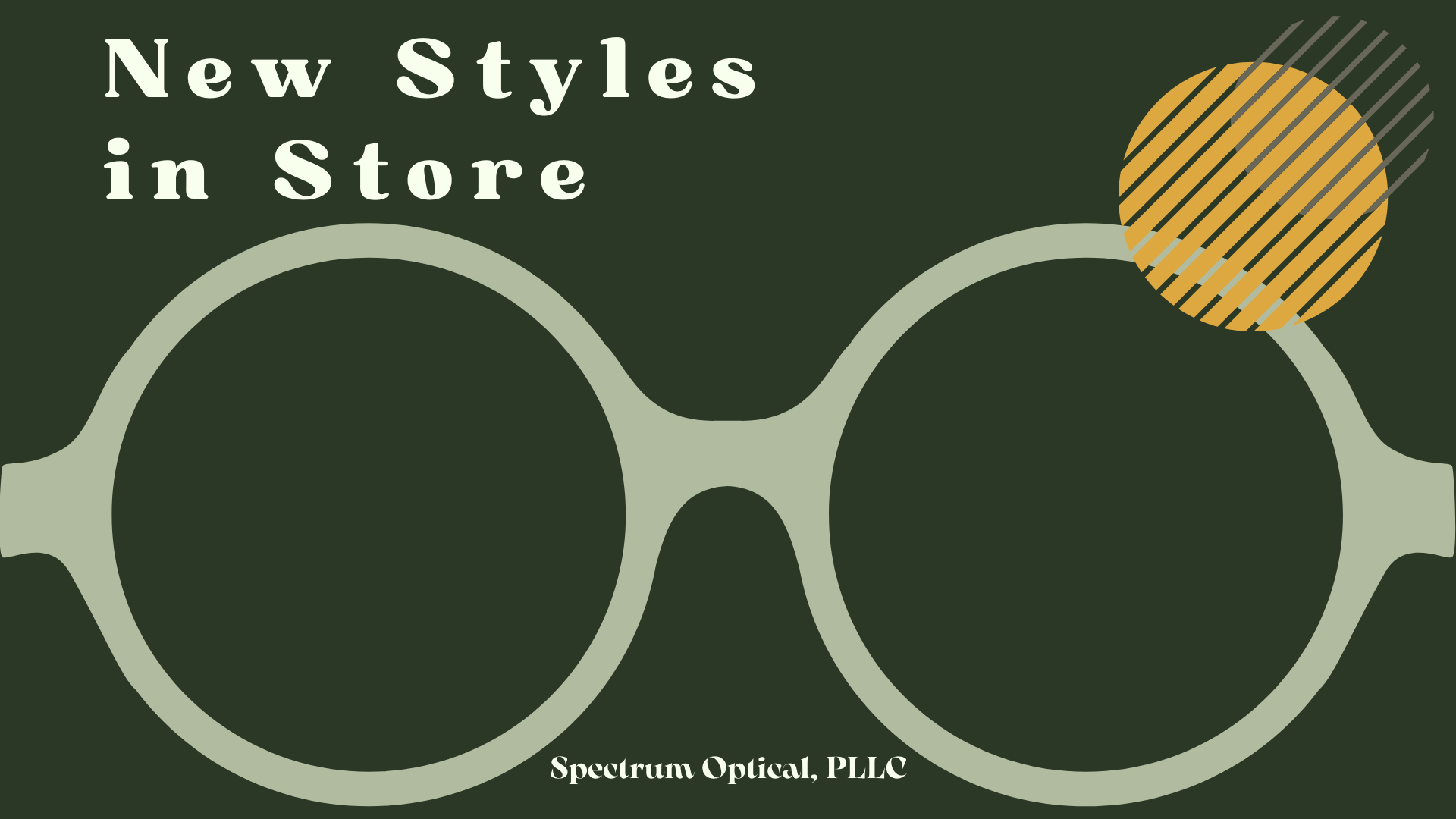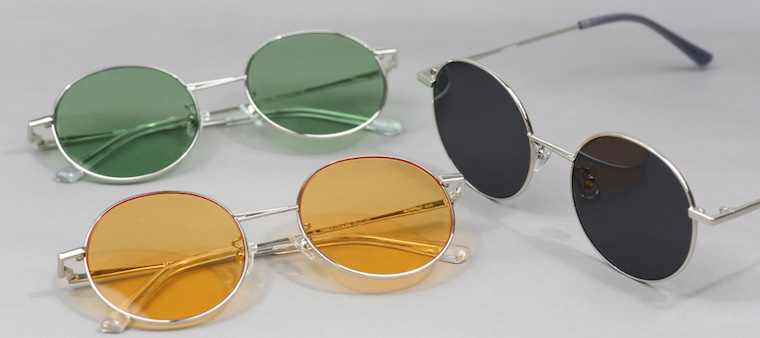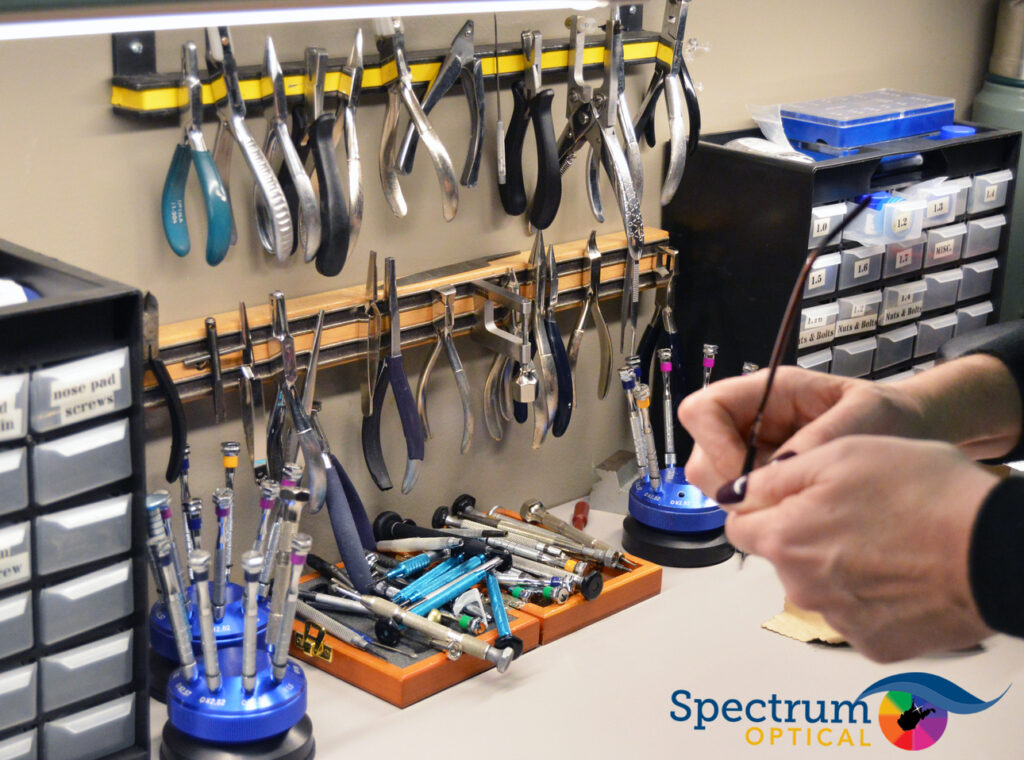Custom Lenses
When you choose Spectrum Optical, “custom” doesn’t have to mean costly!
Eyeglasses are not one-size-fits-all, which is why a personalized approach can make all the difference. Our Opticians can help you customize your eyeglass lenses to meet your unique vision needs without breaking your budget. We offer convenient payment options and accept most major insurances to make the process even easier than you thought it could be!
So you may be wondering…. what do we mean by customization? Well, here are just a few options that can help you create the perfect pair of lenses.

Our Opticians Recommend:
- Scratch Resistance Materials: Upgraded scratch protection is available with many lens types! Scratch-resistance not only makes your lenses stronger and more durable – it also adds an additional warranty to your lens purchase! Plus, scratch-resistance lenses last longer and perform better than lenses without this feature.
- Anti-Reflective Coatings: Anti-reflective lens treatments, often referred to as “AR”, are applied to eyeglass lenses to decrease the amount of glare seen through a lens. AR coatings are designed to allow more light to reach the wearer’s eyes, improving visual acuity. Some AR products may show a purple or green hue when exposed to bright light – that means they are working!
- Blue Light Protection: Blue light is a form of high-energy visible (HEV) light that is emitted from devices that rely on LED technology. This can include computers, cell phones, tablets, and flat-screen televisions that many of us use every day. While exposure to blue light might not cause permanent damage to the eyes, research has shown that it does often lead to dry eyes and a digital eyestrain. Applying blue light protection to your eyeglasses can help mitigate these uncomfortable symptoms and reduce the symptoms of digital eye fatigue.
- Light-Adaptive Lenses / Polarization: Polarization essentially allows a person to wear sunglasses with their unique prescription in the same lenses! Switching between everyday glasses and sunglasses is not an issue for those with polarized lenses. You may not even notice a difference in the appearance of polarized lenses versus regular ophthalmic lenses. On the other hand, light-adaptive lenses darken in the presence of sunlight and/or UV light. When indoors, the lenses will appear clear or almost clear and function as normal eyeglasses. Light-adaptive lenses react quickly when the wearer steps into sunlight, darkening to a color pre-determined at the time of order – usually, grey or brown. Like polarized lenses (think of sunglasses), this lens feature protects the wearer’s eyes and makes it easier to see in bright light.
- Tints / Gradients: Have you ever seen lenses that were pink, blue, orange, yellow, green, or maybe even a few colors all at once? These tinted lenses can provide extra relief from harsh light on sunny days, and have a side effect of looking super cool! There is even evidence that tinted lens can help treat light sensitivity in patients with traumatic brain injuries (TBI). We can create a custom gradient pattern for your lenses that you get to choose – you can be sure that your lenses are totally unique to you!

We offer tinted lenses in the color of your choosing!
Your Doctor May Prescribe:
- NeuroLenses: A unique approach to correcting eye misalignment (which is more common than you think) that allows for a wearable, functional solution to many uncomfortable symptoms, like eye strain, headaches, and stiffness. Sound familiar? Take the NeuroLens assessment to see if you might be a good candidate!
- Single vision lenses are lenses that can help correct nearsightedness or farsightedness, as well as astigmatism. However, they cannot help a person see both far away and up close- that type of lens is discussed below.
- Bifocal lenses can help a person see both far away and up close. Bifocal lenses will often have a visible “line” across them which shows where the reading prescription (usually, the bottom portion) and the distance prescription (usually, the top portion) meet.
- Trifocal lenses are similar to bifocal lenses, in that they allow the wearer to have multiple focal areas without the need to purchase multiple pairs of eyeglasses. Trifocals differ in that they contain a third middle area with intermediate focus correction.
- Progressives offer a smooth transition from distance to near vision correction. These lenses do not have visible segment lines and allow the wearer to see clearly at all distances, not just near or far. These are sometimes called “no-line bifocals”, though they are their own type of lens! Progressives are especially helpful for people over the age of 40 who struggle to see objects up close.
- Occupational lenses are specialized lenses designed for use with specific hobbies or tasks. These lenses differ from typical multifocal lenses in that the magnified power areas are larger and may be positioned in different areas of the lens, based on how they are meant to be used. Occupational lenses are especially useful for people who work with small details in their daily routines.
- Office/computer lenses help relieve eye fatigue and tension for people who work on computers often. Computer lenses take into account the distance between you and your computer screen and have a larger area of the lens devoted to the level of correction needed at this particular distance. Rather than having to move your head around to see the computer clearly, these lenses are designed to require less effort from the person wearing them.

If you’ve already found your perfect pair but they need some TLC, we have good news – periodic adjustments, replacement screws, and nose pads are complimentary on eyewear purchased from our office.
Our Opticians can’t wait to help you create the perfect eyewear! Visit us in Morgantown or Bridgeport to place your order today.
